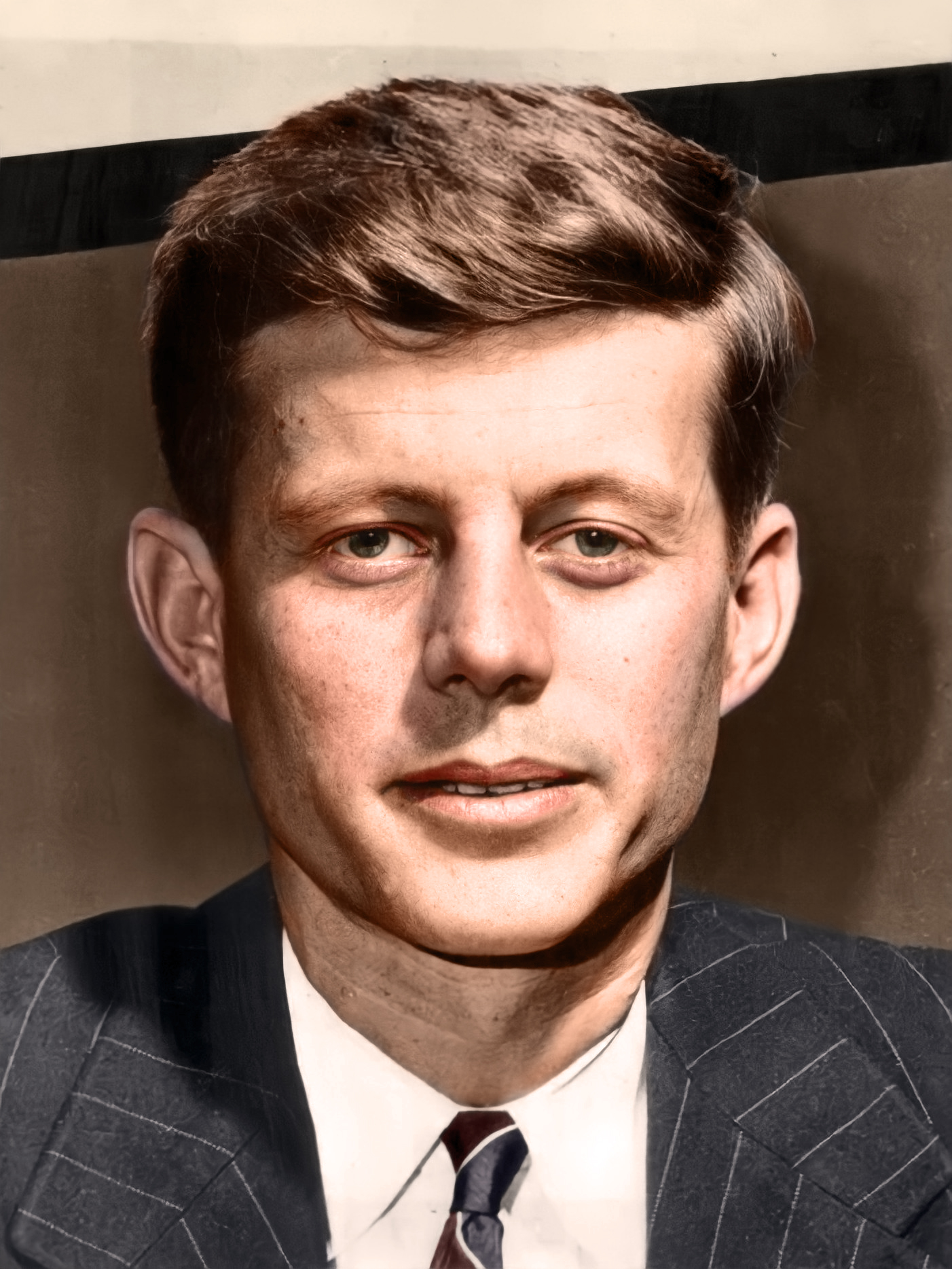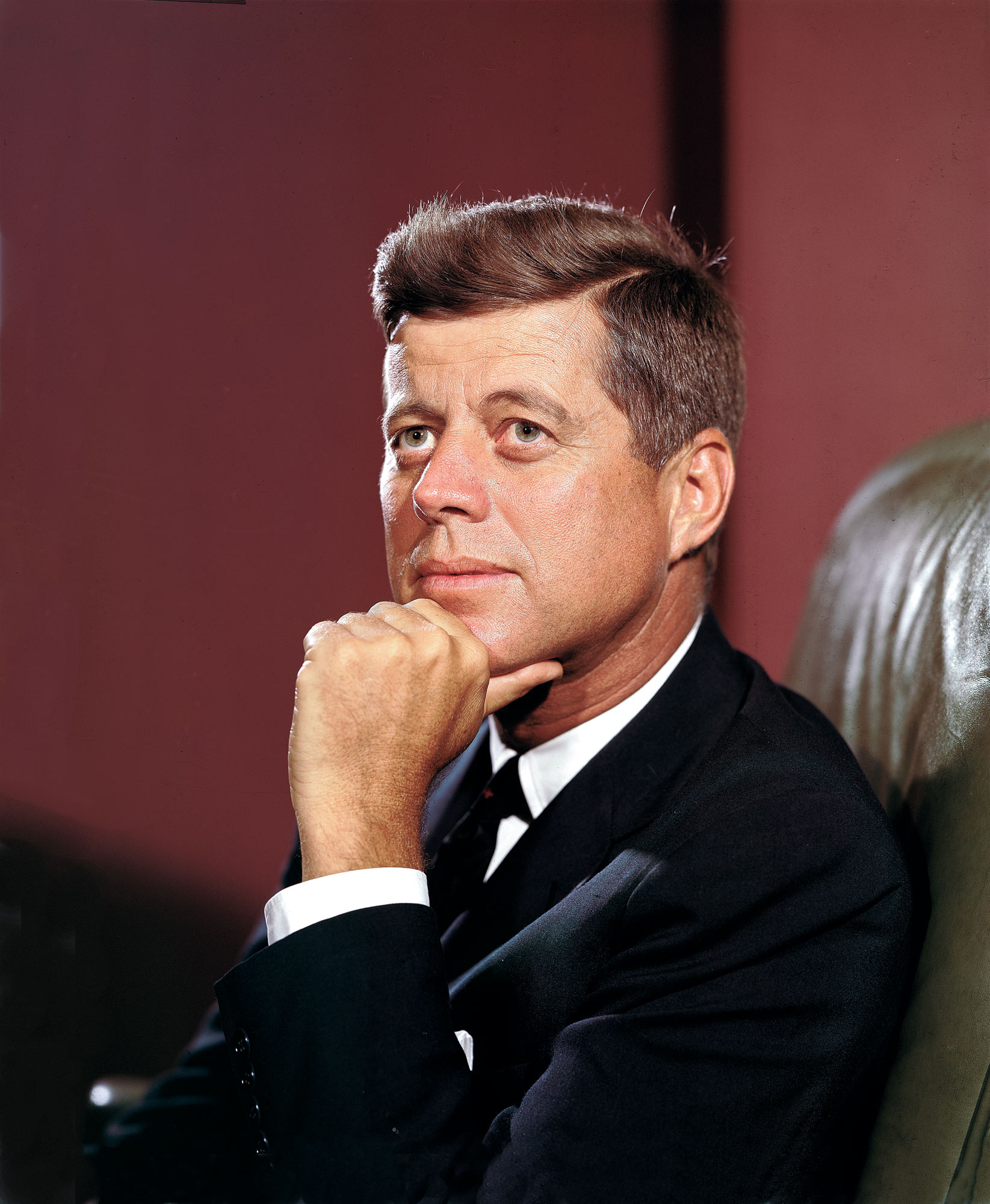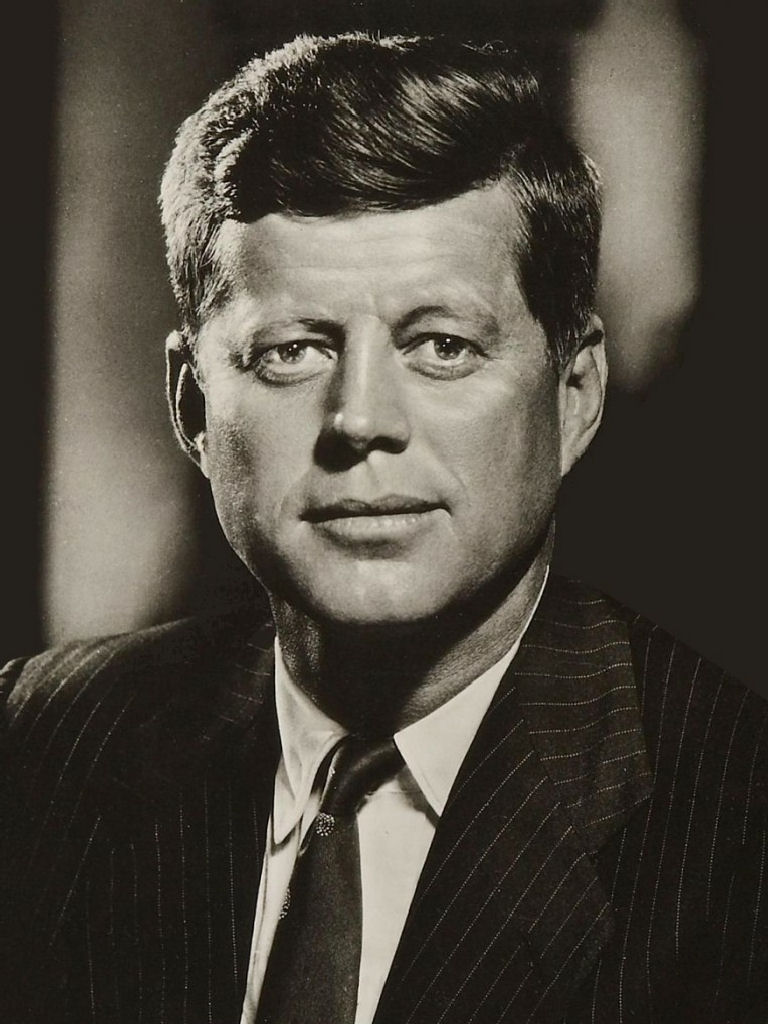JFK: How Many Years President And What Defined His Short Tenure
Detail Author:
- Name : Leola Kunze
- Username : simonis.jarvis
- Email : ntillman@halvorson.org
- Birthdate : 2006-06-07
- Address : 1942 Yost Corners West Russelview, RI 99561
- Phone : 979.948.4896
- Company : McClure, Bechtelar and Schoen
- Job : Supervisor of Police
- Bio : Quia et autem et libero. Enim doloremque illo deleniti rerum quia. Aliquam in ducimus accusantium accusantium quae.
Socials
linkedin:
- url : https://linkedin.com/in/sanfordleannon
- username : sanfordleannon
- bio : Perferendis aut suscipit eius sapiente.
- followers : 4537
- following : 19
tiktok:
- url : https://tiktok.com/@sanford_official
- username : sanford_official
- bio : Vero repellendus aut quo odit.
- followers : 335
- following : 1132
instagram:
- url : https://instagram.com/sleannon
- username : sleannon
- bio : Facere et omnis aperiam corrupti. Deleniti et est eligendi ea.
- followers : 4862
- following : 130
Many folks wonder just how long John F. Kennedy actually served as president of the United States. It's a question that often comes up, perhaps because his time in office felt so brief, yet his impact remains quite large. People often remember the sudden, sad end to his presidency, so it's natural to ask about the exact duration. This piece aims to clear up that very question, giving you a good look at his time leading the country and some of the big moments that happened during it. You know, it's pretty interesting to think about what he managed to do in such a limited period.
His presidency, while brief, was full of significant happenings, moments that still get talked about a lot today. From the very start, there was a sense of newness, a fresh approach that many people felt. We'll explore the period he served, from when he first took the oath of office to that fateful day in November 1963. It's a story that, in a way, shaped much of what came after in American politics and society. So, we'll get into the details of his time in charge, giving you a clearer picture.
Understanding the length of his presidency helps us appreciate the events that unfolded under his watch, and how much he tried to accomplish. It gives a real sense of perspective on his vision for the country and the world. This look back will give you a better grasp of his journey, and what his time in the White House meant for many people, both then and now. So, let's get into the specifics, shall we, and see just how many years John F. Kennedy was president.
Table of Contents
- Early Life and Political Beginnings
- Personal Details and Bio Data: John F. Kennedy
- The Road to the White House
- A New Frontier: The Start of a Presidency
- Key Moments and Challenges During His Presidency
- The Duration of His Presidency
- The Tragic End and Lasting Impact
- Frequently Asked Questions About JFK
- Conclusion
Early Life and Political Beginnings
John F. Kennedy, often known as JFK, came from a rather prominent family, and his early years certainly set the stage for a life in public service. He and his eight siblings, you know, had a pretty comfortable upbringing, going to elite private schools and enjoying activities like sailing. This kind of background, in a way, shaped his outlook and gave him opportunities many others did not have. It's interesting to consider how those early experiences might have influenced his later decisions as a public figure.
His path into politics started after his service in the Navy during World War II, where he showed great courage. He first became a member of the House of Representatives, representing a district in Massachusetts. From there, he moved on to the Senate, which is where his political career really began to take shape. This period was quite important for him, as he learned the ins and outs of national policy-making. He was, in fact, building a reputation for himself.
Kennedy's time in the Senate, however, had some moments that were a bit tricky, especially early on. For example, his Senate career got off to a rocky start when he refused to condemn Senator Joseph McCarthy, who was a personal friend of the Kennedy family. This decision, in some respects, showed a certain loyalty, but it also caused some discussion. He was, as a matter of fact, making his own way in the political arena, even when it meant facing criticism.
Personal Details and Bio Data: John F. Kennedy
| Detail | Information |
|---|---|
| Full Name | John Fitzgerald Kennedy |
| Born | May 29, 1917 |
| Birthplace | Brookline, Massachusetts, USA |
| Died | November 22, 1963 |
| Place of Death | Dallas, Texas, USA |
| Cause of Death | Assassination |
| Spouse | Jacqueline Lee Bouvier Kennedy |
| Children | Caroline, John Jr., Patrick (deceased) |
| Political Party | Democratic |
| Education | Harvard University |
| Military Service | United States Navy (WWII) |
The Road to the White House
Before becoming president, Kennedy had already shown his ambition and political skill. He had nearly become Stevenson’s vice presidential running mate in 1956, which was a significant step for him, even though it didn't quite happen. This experience, you know, gave him a taste of what a national campaign felt like and helped him prepare for his own run for the top job. It's interesting how close he came to that position years before his own successful bid.
His presidential campaign in 1960 was quite a groundbreaking one, facing off against Richard Nixon. It was the first time presidential debates were televised, and this changed how candidates connected with voters. Kennedy's youthful energy and confident presence on television, apparently, made a real impression on many people watching at home. This was a pretty big deal for American politics at the time.
The election itself was incredibly close, showing just how divided the country was in some respects. Kennedy won by a very small margin in the popular vote, but secured enough electoral votes to become the youngest person ever elected president. This victory, naturally, brought a wave of excitement and hope for a new generation of leadership. It was, quite honestly, a moment that many Americans would remember for a long time.
A New Frontier: The Start of a Presidency
John F. Kennedy took the oath of office on January 20, 1961, and his inaugural address immediately captured the attention of the nation and the world. His famous words, "Ask not what your country can do for you – ask what you can do for your country," truly inspired a whole generation. This speech, you know, set a tone of public service and responsibility, encouraging citizens to participate actively in building a better future. It was, basically, a very powerful message that resonated widely.
He called his domestic program the "New Frontier," aiming to address challenges both at home and abroad. This vision included expanding opportunities for Americans, pushing for civil rights, and investing in scientific research and space exploration. It was a pretty ambitious set of goals for a new administration. The idea was to move the country forward, to tackle big problems with fresh ideas. He really wanted to make a difference, and that was clear from the start.
Early in his presidency, Kennedy also focused on strengthening America's position in the world, especially during the Cold War. He established the Peace Corps, sending young Americans to help developing nations, which was a truly popular initiative. This program, in a way, showed a different side of American influence, one based on cooperation and goodwill rather than just military might. It was, honestly, a very thoughtful approach to global relations.
Key Moments and Challenges During His Presidency
Despite the relatively short time he served, Kennedy's presidency was packed with significant events and difficult decisions. He faced numerous challenges that tested his leadership, both domestically and on the international stage. These moments, you know, really shaped his time in office and left a lasting mark on history. It's pretty remarkable how much happened in such a brief period.
The Bay of Pigs and the Cuban Missile Crisis
One of the earliest and most difficult foreign policy challenges was the Bay of Pigs invasion in April 1961, a failed attempt to overthrow Fidel Castro's government in Cuba. This operation, inherited from the previous administration, did not go well at all, and it was a real setback for the young president. It taught him, in a way, some very tough lessons about international operations and trusting advice. It was, quite frankly, a pretty humbling experience for his administration.
However, he faced an even greater crisis in October 1962: the Cuban Missile Crisis. This was a thirteen-day standoff with the Soviet Union over their placement of nuclear missiles in Cuba, bringing the world to the brink of nuclear war. Kennedy's handling of this crisis, which involved a naval blockade and intense negotiations, is often seen as a defining moment of his presidency. He showed, you know, incredible restraint and strategic thinking during an incredibly tense time. It was, apparently, a moment when the whole world held its breath.
Civil Rights and Social Change
At home, the Civil Rights Movement was gaining serious momentum, pushing for equal rights for African Americans. Kennedy initially moved with some caution, but as the movement grew, he became a strong supporter of civil rights legislation. His administration worked to end segregation and ensure voting rights, often facing fierce resistance. This was, in some respects, a very complex and emotionally charged issue for the nation. He was, actually, trying to steer the country through a period of immense social change.
He delivered powerful speeches on the moral imperative of civil rights, urging Americans to live up to the nation's ideals. His efforts helped lay the groundwork for the landmark Civil Rights Act of 1964, which was passed after his death. This commitment to equality, you know, showed a deep belief in justice for all people. It was, truly, a significant part of his domestic agenda, even if it was still in progress.
The Space Race: A Bold Goal
Another big initiative during his presidency was the commitment to the space race. In 1961, Kennedy declared that America would land a man on the Moon before the end of the decade. This ambitious goal, you know, captured the imagination of the nation and spurred incredible scientific and technological advancements. It was a way to compete with the Soviet Union, but also to inspire a sense of national purpose. This was, basically, a very exciting time for science and exploration.
This bold vision led to massive investments in NASA and related industries, creating jobs and fostering innovation across the country. It was a project that united many Americans, giving them a common dream to work towards. The moon landing, achieved just a few years after his death, was a direct result of his challenge. It was, quite honestly, one of the most impactful legacies of his short time in office.
The Duration of His Presidency
So, to get right to the point of "jfk how many years president," John F. Kennedy served as president for a relatively short period, cut tragically short. He was sworn into office on January 20, 1961. His presidency came to an abrupt end on November 22, 1963, when he was assassinated in Dallas, Texas. This means his time in the White House lasted less than a full term, which is usually four years. He was, in fact, in office for a very specific number of days.
If we do the math, from January 20, 1961, to November 22, 1963, that amounts to 2 years and 306 days. My text mentions this period quite clearly, stating that "On November 22, 1963, when he was hardly past his first thousand days." This phrase gives a pretty good idea of just how brief his time in the highest office actually was. It's a striking way to put it, showing the suddenness of the end. He was, literally, just over a thousand days into his term.
To be more precise, that is 1,036 days. This duration is one of the shortest presidencies in American history for someone who was not a vice president taking over. It's a fact that often surprises people, given the powerful impression he made and the significant events that occurred during his tenure. You know, it really highlights how much can happen in a relatively short span of time. His time was, in a way, very concentrated with big moments.
The Tragic End and Lasting Impact
The assassination of President Kennedy on November 22, 1963, sent shockwaves across the nation and the world. It was a moment that, for many, marked the end of a hopeful era and plunged the country into deep mourning. The suddenness of it all, you know, left a profound mark on American memory. People who lived through it can often tell you exactly where they were when they heard the news. It was, truly, a very sad day for countless people.
Despite the brevity of his time in office, Kennedy's presidency left a truly lasting impact. His call for a "New Frontier" inspired a generation to public service and innovation. Many of the programs and policies he initiated, or championed, continued to develop and shape American society for years afterward. He was, in a way, a symbol of youth and possibility, even after his passing. His spirit, it seems, continued to influence things for a long while.
His legacy is often remembered for his handling of the Cuban Missile Crisis, his push for civil rights, and his ambitious goal of landing a man on the Moon. He also brought a certain style and charisma to the presidency that captivated many. His image, you know, has remained a powerful one in American culture. It's pretty clear that even a short time in office can leave an incredibly significant mark on history, shaping things for years to come. You can learn more about John F. Kennedy's life and presidency by visiting the official library site.
Frequently Asked Questions About JFK
Many people have questions about John F. Kennedy's time as president, especially because of how his life ended. Here are some common inquiries that come up quite a bit, offering more clarity on his brief, yet impactful, period in the White House. You know, these are the kinds of things that often pop into people's minds when thinking about him.
When did JFK become president?
John F. Kennedy took the oath of office and became president on January 20, 1961. This marked the start of his time leading the country, bringing a fresh face and new ideas to Washington. It was, in a way, a very exciting moment for many Americans who felt a shift in national leadership. He was, basically, ready to begin his work from that very day.
When was JFK assassinated?
President John F. Kennedy was tragically assassinated on November 22, 1963, in Dallas, Texas. This sudden event brought his presidency to an unexpected and sorrowful end. It was, honestly, a day that many people remember quite vividly, marking a significant turning point in American history. The date is, apparently, etched into the memories of a generation.
How old was JFK when he died?
At the time of his death on November 22, 1963, John F. Kennedy was 46 years old. He was born on May 29, 1917, making him the youngest president to die in office. His youth, you know, was a big part of his public image and appeal. It's pretty striking to think about how young he was when his life was cut short. He was, in a way, still in the prime of his life.
Conclusion
So, when you ask "jfk how many years president," the straightforward answer is that John F. Kennedy served for 2 years and 306 days, from January 20, 1961, until his assassination on November 22, 1963. This period, while not a full four-year term, was filled with significant moments that continue to shape how we view American history. It's a pretty clear example of how influence isn't always measured by length of time. He was, in fact, a president who made a big impression.
His legacy, therefore, isn't just about the number of days he spent in office, but about the challenges he faced, the goals he set, and the inspiration he offered to many people. From the tense moments of the Cuban Missile Crisis to his bold vision for space exploration and his efforts for civil rights, his presidency was packed with important events. He was, you know, a leader who truly left his mark. You can learn more about American history on our site, and also find out more about other important figures who shaped the nation.

John F. Kennedy in Color, 1947 - HistoryColored

John F. Kennedy – Yousuf Karsh

John F Kennedy